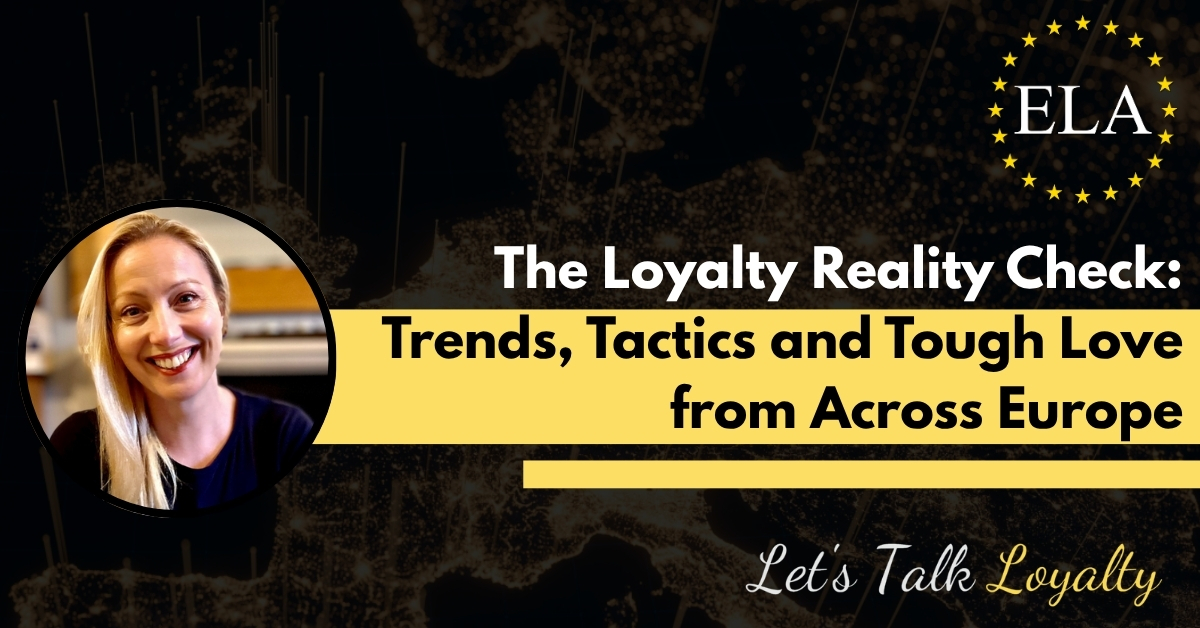This month I joined Let’s Talk Loyalty x Loyalty TV to share what I’ve learned from The ELA™ community — the real practitioners building, fixing and fighting for loyalty every day. I’m not here to pretend to be a loyalty strategist. I’m a listener, a connector, and a voice for what I see happening on the ground and in the boardroom.
In this piece, I’m distilling the podcast into the key takeaways for anyone working in or around loyalty right now.
🟢 Simplicity Still Wins
Let’s start with something basic but overlooked: simplicity drives loyalty.
I used Zizzi — the UK casual dining pizza chain — as an example for a reason. Their “Zillionaire’s Club” loyalty programme rewards me every time I visit. It’s fun, instant, and clear. I don’t need to scan a dozen receipts or do mental maths. I eat, I get points, and I see the value straight away. That sense of predictability and reward is underrated in a world obsessed with innovation.
It proves that simplicity isn’t unsophisticated — it’s customer-friendly. Brands chasing loyalty through complexity risk losing customers who simply want to feel recognised without having to work for it.
Another great example is Pret’s coffee subscription. It’s not a traditional loyalty programme, but it creates daily engagement and repeat visits. For £25 a month, you get up to five drinks a day. The customer sees clear value, and Pret wins habitual behaviour.
🔵 Emotional Loyalty is Gaining Ground — But Needs Guts
Consumers are looking for brands that stand for something. Loyalty is no longer about “buy more, get more.” It’s about resonance. That’s why I highlighted The Body Shop and IKEA Family.
The Body Shop is rewarding ethical behaviours — recycling, choosing sustainable products, and engaging with their values. IKEA gives loyalty members early access, exclusive events, and in-store perks that go beyond discounts.
But here’s the catch: emotional loyalty only works if it’s authentic. If it’s bolted on as an afterthought, customers will see straight through it. Loyalty teams need the courage to do things differently — to reflect the customer’s values, not just their spend.
🟡 The Industry’s Achilles Heel? Proving ROI
If there’s one thing loyalty teams across Europe are quietly struggling with, it’s this: justifying their worth internally.
They know loyalty drives revenue. They see customer retention, increased frequency, and improved basket size. But when it comes to tying that value to a measurable, finance-approved ROI — many are still guessing.
This is a big priority for us at The ELA™. We need shared frameworks, open data (when possible), and case studies that show how to link loyalty metrics to P&L. Until that gap closes, loyalty will stay misunderstood by those holding the purse strings.
🔴 AI & Gamification: Loud Buzz, Low Proof
Everyone’s talking about AI and gamification. But here’s what I said on the podcast: show me the numbers.
Very few brands — even the big ones — can currently show a direct, measurable uplift in loyalty performance thanks to AI. Same for gamification. The tech is exciting. But too often, it’s used as a gimmick, not a genuine engagement driver.
ELA members keep telling me: “We’ve trialled it. But did it move the needle? We’re not sure.”
It’s not that these tools don’t have potential — they do. But we need to move beyond novelty and make them serve the customer journey, not distract from it.
🎧 Final Word
The podcast was a chance to speak openly about what’s working, what’s broken, and what the future of loyalty should look like.
It’s not about chasing shiny objects. It’s about building consistent, human-centred experiences that customers actually want to come back for — and giving loyalty professionals the tools and recognition they deserve.
➡️ You can listen to the full episode here
➡️ You can watch the full episode here

